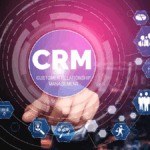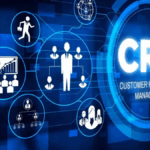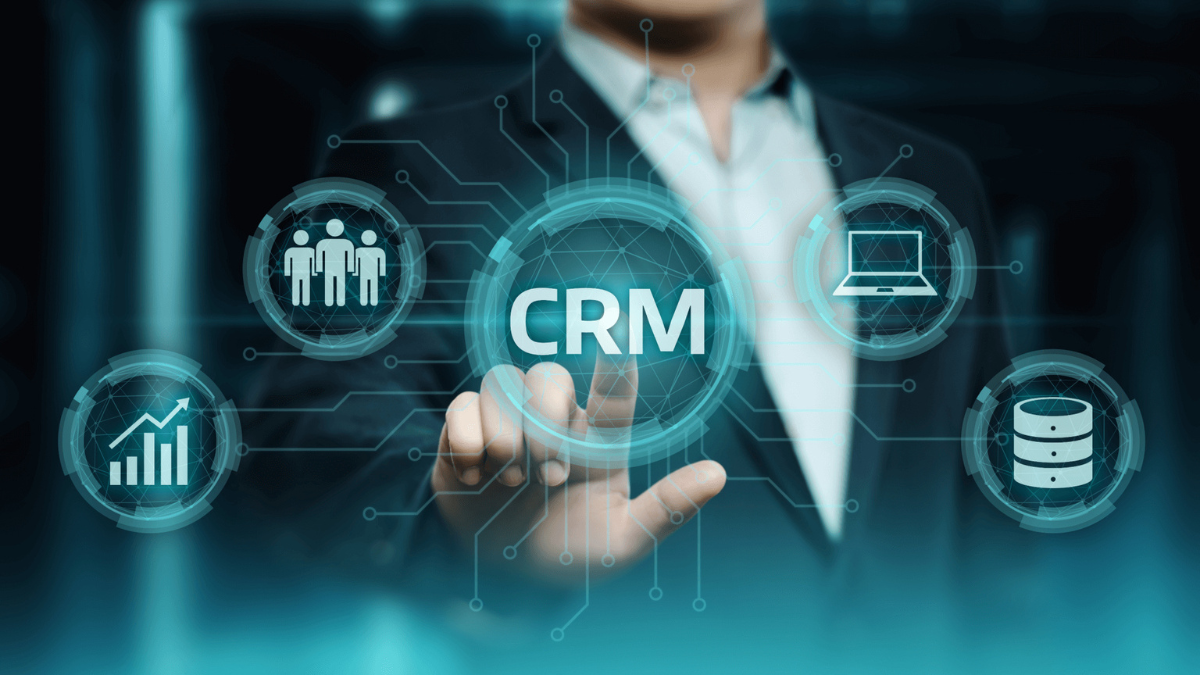In today’s highly competitive market, customer satisfaction and loyalty are essential for long-term business success. This is where a Customer Relationship Management (CRM) system becomes a game-changer. Whether you’re running a small startup or a growing enterprise, implementing a CRM system can dramatically transform how you manage customer relationships and drive growth.
What is a CRM System?
A CRM system is a tool designed to help businesses manage their interactions with current and potential customers. It centralizes customer data, tracks communications, automates processes, and improves service delivery. From lead generation to after-sales service, CRM systems streamline operations across departments.
Why Your Business Needs a CRM System
Centralized Customer Data
One of the most critical advantages of a CRM system is that it consolidates all customer information into a single database. This ensures:
- Easy access to client history
- Improved internal collaboration
- Faster response times
- Reduced data redundancy
Improved Customer Relationships
A CRM system helps businesses offer personalized interactions by tracking customer preferences, purchase history, and feedback. This fosters trust, strengthens relationships, and enhances the overall customer experience.
Enhanced Communication
CRM systems streamline communication by recording every customer interaction. Sales, support, and marketing teams can easily view prior conversations, ensuring consistent and coherent communication across channels.
Better Customer Retention
By tracking customer behavior and service requests, CRM software allows businesses to proactively solve issues, offer timely follow-ups, and strengthen loyalty. Retaining existing customers becomes easier when you understand their needs and deliver consistently.
Boosts Efficiency and Productivity
Automates Repetitive Tasks
A CRM system automates many time-consuming tasks such as:
- Email responses
- Appointment scheduling
- Follow-up reminders
- Lead assignment
This allows teams to focus more on high-value tasks.
Enhances Team Collaboration
CRM systems provide a shared platform where marketing, sales, and support teams can collaborate efficiently. Everyone has access to up-to-date customer data, which promotes transparency and teamwork.
Increases Sales and Revenue
Better Sales Pipeline Management
CRM systems help manage the sales pipeline by organizing leads, tracking opportunities, and setting priorities. Sales representatives can focus on high-potential leads and reduce the risk of missed follow-ups.
Accurate Sales Forecasting
With real-time data and analytics, businesses can make informed decisions about:
- Inventory
- Budgeting
- Hiring
- Growth strategies
Forecasting becomes more precise, helping companies prepare for future demand.
Upselling and Cross-selling Opportunities
CRM systems identify purchasing patterns and customer preferences, enabling businesses to suggest relevant products or services. This increases order values and enhances customer satisfaction.
Data-Driven Insights
Real-Time Reporting
CRM systems offer dashboards and reports that provide:
- Customer behavior trends
- Sales performance
- Marketing campaign effectiveness
These insights help in refining business strategies and identifying areas of improvement.
Performance Monitoring
Managers can track team performance, identify bottlenecks, and set measurable goals. It promotes accountability and continuous improvement across departments.
Scalable and Customizable
Grows with Your Business
CRM systems are scalable, meaning they can grow with your business. You can start with core features and expand to include:
- Marketing automation
- Advanced analytics
- Customer support tools
- Workflow automation
Tailored to Your Needs
Modern CRM platforms offer customization options. Businesses can configure dashboards, fields, workflows, and reports to match specific operational needs.
Improves Marketing Effectiveness
Targeted Campaigns
CRM data allows marketers to segment audiences based on:
- Purchase history
- Demographics
- Behavior
This ensures more personalized and impactful campaigns.
Lead Nurturing
CRM systems automate email sequences, offer reminders, and deliver timely content. It keeps potential customers engaged until they’re ready to convert.
Better Customer Support
Quicker Response Times
Support teams can quickly access customer information, past issues, and preferences. This leads to faster resolution and happier customers.
Consistent Service
Even when team members change, the CRM keeps a record of previous interactions. This ensures continuity and maintains customer trust.
Improves Decision-Making
Centralized Analytics
Data from marketing, sales, and support all feed into one platform. Decision-makers can view performance metrics in real-time and take data-backed actions.
Strategic Planning
With access to historical data and trends, businesses can make long-term strategic plans with more confidence.
Enables Remote Work and Accessibility
Cloud-Based Access
Most CRM systems are cloud-based, allowing team members to access customer data anytime, anywhere. This is essential for remote work and global teams.
Mobile-Friendly Platforms
Mobile apps allow on-the-go access, making it easier for sales reps and support teams to stay updated and responsive.
Strengthens Customer Loyalty
Personalized Experiences
CRM data helps tailor messages, offers, and services to individual preferences. Personalized experiences make customers feel valued.
Loyalty Programs
Track customer purchases and offer rewards through integrated loyalty programs within the CRM. This fosters long-term engagement.
Helps Manage Customer Lifecycle
From Lead to Repeat Purchase
CRM systems manage every stage of the customer journey, including:
- Lead generation
- Conversion
- Onboarding
- Retention
- Advocacy
This ensures that no part of the lifecycle is neglected.
Streamlines Compliance and Security
GDPR and Data Protection
CRM systems help businesses stay compliant with data protection laws by:
- Managing consent
- Storing secure records
- Offering audit trails
Role-Based Access
You can control who accesses what data within the system. This prevents unauthorized access and enhances data security.
Conclusion
Investing in a CRM system is no longer optional—it’s a strategic necessity. From improving internal workflows to enhancing customer experiences, CRM systems offer a wide array of benefits that can transform how your business operates. By centralizing data, automating tasks, and delivering valuable insights, a CRM system empowers your team to deliver exceptional customer service, boost sales, and fuel long-term growth.
Whether you’re a small enterprise or a growing organization, the right CRM system can be your most valuable asset in building and maintaining strong customer relationships. The earlier you adopt one, the greater your competitive advantage.
FAQs
What types of businesses benefit most from CRM systems?
CRM systems benefit a wide range of businesses including those in retail, healthcare, education, and service-based industries. Any business that manages customer relationships can benefit.
Is a CRM system expensive?
CRM systems range in price. There are affordable options for small businesses and more comprehensive platforms for larger organizations. The long-term ROI often outweighs the initial investment.
Can a CRM system integrate with other tools?
Yes. Most CRM platforms integrate with tools like email clients, social media platforms, analytics software, and e-commerce systems.
Is CRM difficult to learn?
Modern CRM systems are user-friendly and come with tutorials and customer support. Training your team may take a short time but yields long-term benefits.
How do CRM systems help increase sales?
By managing leads, tracking interactions, and providing insights into customer behavior, CRM systems help sales teams focus on high-potential opportunities and close more deals.
Are CRM systems secure?
Yes. Most CRM platforms use encryption, access controls, and regular audits to ensure data security.
How do I choose the right CRM system?
Consider your business size, budget, required features, and future scalability. Choose a platform that matches your current needs but can grow with you.











